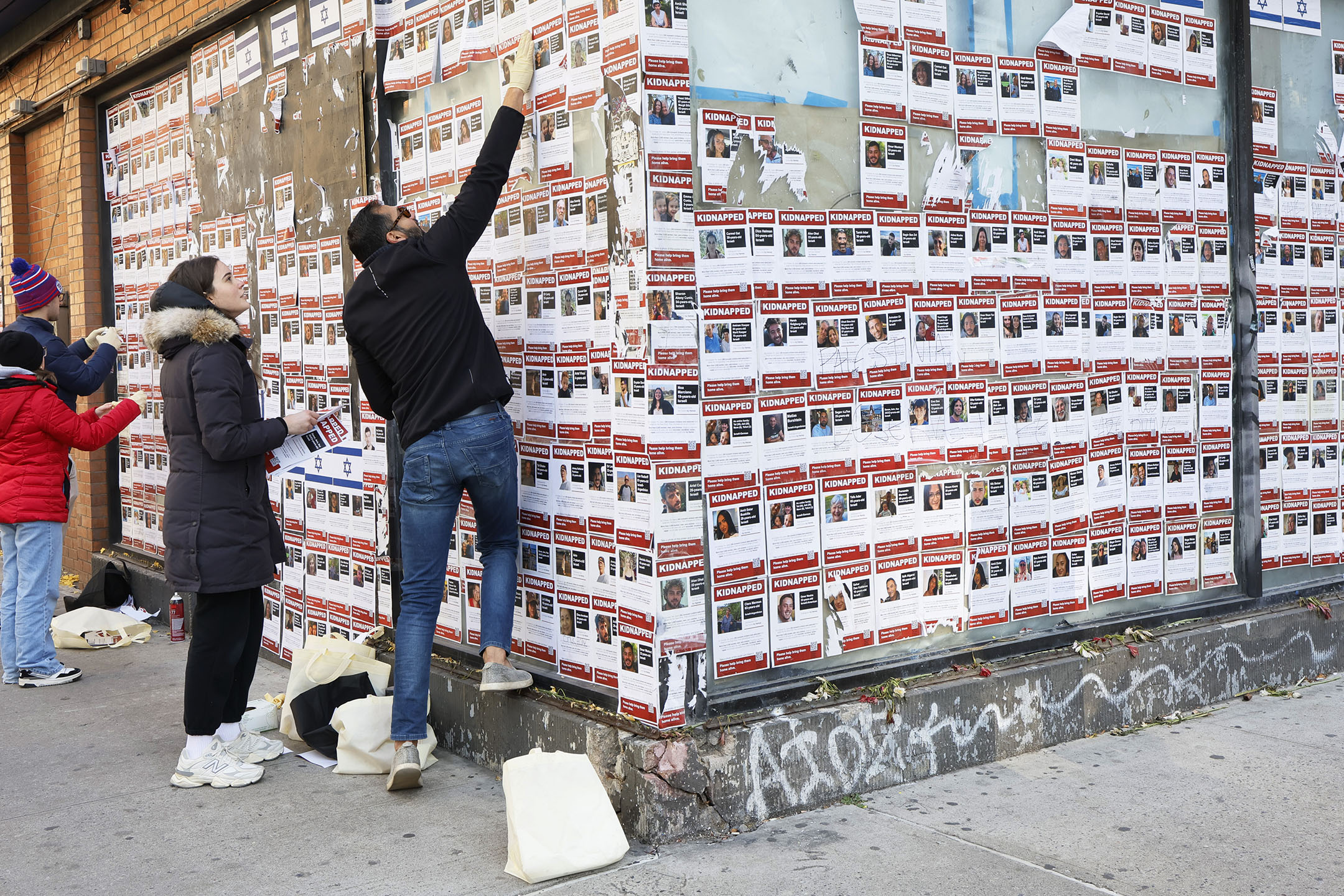
It’s been a long year, possibly the longest year that we have faced since the Nazis were defeated and the concentration camp survivors were freed. Nineteen-forty-eight and 1967 and 1973 were long years too, but each of them ended in victory. While the many long years since then have not always led to such clear-cut results, we could almost always prepare for the High Holy Days with some sense of confidence that the modern-day Israeli experiment was succeeding. There were steps forward and backward, distractions and frustrations. But we knew that we were on the right path.
But as we mark the one-year anniversary of the Simchat Torah Massacre, the future is even more uncertain than it was last Oct. 8. The unresolved nature of the war against Hamas, the prospect of a broader conflict with Hezbollah, and the potential for a region-wide battle that ignites the entire Middle East has produced a level of uncertainty and trepidation both in Israel and among Diaspora Jews unlike any that we have seen in the last 76 years.
We feel threatened, not only by the prospect of military attacks in the Middle East but the resurgent antisemitism throughout the world. One year ago, few of us believed that anti-Jewish hatred was gone. But the prevailing opinion in our community was that it was in retreat, that it had been banished to the margins and the shadows. We looked at tragedies in Poway and Pittsburgh and Charlottesville as aberrations rather than indicators, as infrequent exceptions rather than insistent warnings.
Since then, we’ve learned that those ancient hatreds never disappear. They are never fully eliminated. As hard as we try and as strongly as we hope, we will never exterminate true prejudice and bias. The bigots, both blood-and-soil nationalists and overly-woke Hamas apologists, will patiently wait for the opportunity to crawl out of their crevices and pick up where their predecessors left off. Throughout our long history, no previous generation of Jews has ever avoided this challenge from the oldest and darkest forces in our communities. Neither will we.
But while we shouldn’t have needed to relearn these lessons, we have now been reminded that the price of our heritage and our faith is eternal vigilance. We know that our religion and our culture require constant protection. We remember — yet again — that we must defend what we hold dear and we must do it ourselves. If we wait for others to come to our rescue, we will be repeatedly disappointed, disheartened and dangerously vulnerable. We benefit from friendships and alliances with others and we need to relearn the importance of reaching out to other underrepresented communities so we can work together, grow together and care for each other. But we can’t rely on others to do this work for us: we are the saviors we’ve been waiting for.
This will require us to deprioritize our quarrels over domestic policy in whatever country we live, and recognize that those divisions cannot divide us from the legacy, the traditions, the core beliefs of our shared past and shared future. We must recognize that while we are proud to be Democrats and Republicans, progressives and conservatives, we are first and foremost children of Abraham, Isaac and Jacob.
The Jewish religion is not perfect, nor is the Jewish state. Both our faith and our homeland benefit from questions asked from those who love them, and those challenges make us better. Of course Jews disagree. We revel in our disagreements. But our disagreements are supposed to bring us closer and not drive us apart. At our best, we disagree so that we can improve and move forward together.
Of course Jews disagree. We revel in our disagreements. But our disagreements are supposed to bring us closer and not drive us apart. At our best, we disagree so that we can improve and move forward together.
The false sense of security that many of us have felt in 21st-century America is no more. That could be a curse. It might be a blessing. But most likely and most accessibly, it should be an opportunity for us to begin anew and to commence a rebuilding process that will allow us to celebrate our Judaism the way we deserve.
Shanah Tovah
Dan Schnur is the U.S. Politics Editor for the Jewish Journal. He teaches courses in politics, communications, and leadership at UC Berkeley, USC and Pepperdine. He hosts the monthly webinar “The Dan Schnur Political Report” for the Los Angeles World Affairs Council & Town Hall. Follow Dan’s work at www.danschnurpolitics.com.






















 More news and opinions than at a Shabbat dinner, right in your inbox.
More news and opinions than at a Shabbat dinner, right in your inbox.